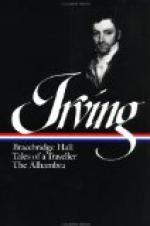“With a Viennese orchestra for twenty-nine thousand!” added Bragdon. “And yet they maintain that silence is golden.”
“And three singers to divide twelve thousand among themselves! That’s absolutely criminal,” cried Van Winkle. “Over in Germany they’d sing a month for half that amount.”
“Six hundred guests to feed—total cost of not less than forty thousand dollars,” groaned “Nopper,” dolefully.
“And there aren’t six hundred in town,” lamented “Subway” Smith. “All that glory wasted on two hundred rank outsiders.”
“You men are borrowing a lot of trouble,” yawned Brewster, with a gallant effort to seem bored. “All I ask of you is to come to the party and put up a good imitation of having the time of your life. Between you and me I’d rather be caught at Huyler’s drinking ice cream soda than giving this thing. But—”
“That’s what we want to know, but what?” and “Subway” leaned forward eagerly.
“But,” continued Monty, “I’m in for it now, and it is going to be a ball that is a ball.”
Nevertheless the optimistic Brewster could not find the courage to tell Peggy of these picturesque extravagances. To satisfy her curiosity he blandly informed her that he was getting off much more cheaply than he had expected. He laughingly denounced as untrue the stories that had come to her from outside sources. And before his convincing assertions that reports were ridiculously exaggerated, the troubled expression in the girl’s eyes disappeared.
“I must seem a fool,” groaned Monty, as he left the house after one of these explanatory trials, “but what will she think of me toward the end of the year when I am really in harness?” He found it hard to control the desire to be straight with Peggy and tell her the story of his mad race in pursuit of poverty.
Preparations for the ball went on steadily, and in a dull winter it had its color value for society. It was to be a Spanish costume-ball, and at many tea-tables the talk of it was a god-send. Sarcastic as it frequently was on the question of Monty’s extravagance, there was a splendor about the Aladdin-like entertainment which had a charm. Beneath the outward disapproval there was a secret admiration of the superb nerve of the man. And there was little reluctance to help him in the wild career he had chosen. It was so easy to go with him to the edge of the precipice and let him take the plunge alone. Only the echo of the criticism reached Brewster, for he had silenced Harrison with work and Pettingill with opportunities. It troubled him little, as he was engaged in jotting down items that swelled the profit side of his ledger account enormously. The ball was bound to give him a good lead in the race once more, despite the heavy handicap the Stock Exchange had imposed. The “Little Sons” took off their coats and helped Pettingill in the work of preparation. He found them quite superfluous, for their ideas never agreed and each man had a way of preferring his own suggestion. To Brewster’s chagrin they were united in the effort to curb his extravagance.




